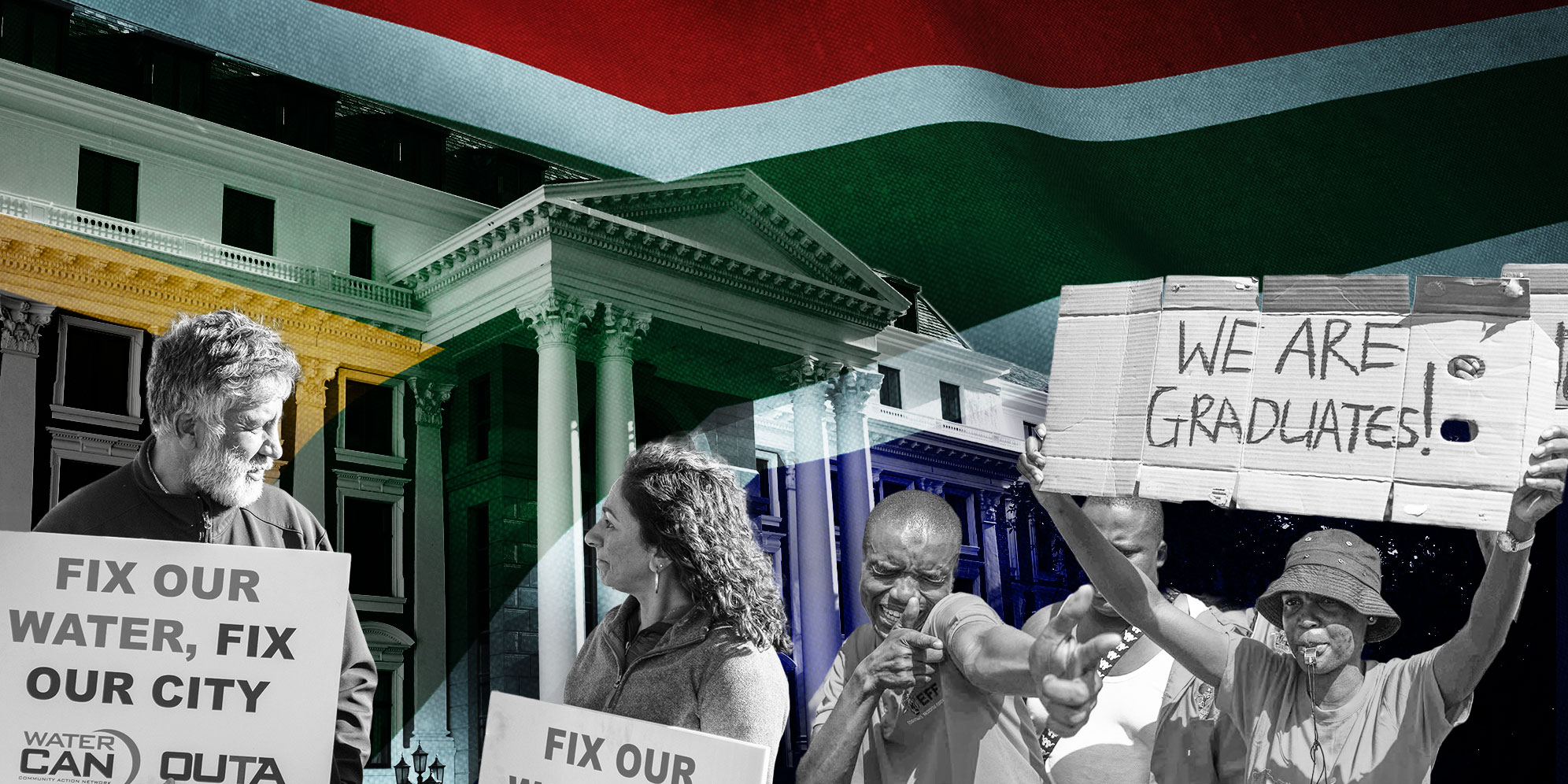South Africa’s 2024 elections led to the biggest changes in the opposition benches.
The Democratic Alliance (DA), which had become very effective in opposition, was suddenly in government (and taking many of its oppositional habits into the Union Buildings).
A party (MK) which had never been represented in Parliament before was suddenly the Official Opposition. And was led by someone who himself had never been an MP.
The previous time John Hlophe had been mentioned in the National Assembly was the day he became the first judge to be impeached in the democratic era.
The Economic Freedom Fighters (EFF), used to being able to make noise as the third-biggest party, found itself in a reduced role, even though its greater parliamentary experience has made it more effective than the uMkhonto Wesizwe (MK) party.
And there are several smaller parties who have both tried to be oppositional to the coalition, and flirted with joining it.
It is perhaps the greatest indictment of our opposition parties that despite the fact the coalition has delivered GDP growth of just 0.1%, they cannot craft an effective message.
A major part of this has been the divided nature of the MK party.
Considering President Jacob Zuma’s history of a lust for personal power and for wrecking institutions, this was always going to be the case.
The revolving door of people in the position of secretary-general has surely created massive instability.
It was also entirely predictable that the trio of Zuma, Hlophe and Floyd Shivambu was going to be about as stable as the Trump-Musk relationship.
Zuma also had very few people to choose from.
The fact he had to appoint someone like Mzwanele Manyi to the position of Chief Whip and then demote him is proof of that.
Probably only one other individual has said more and contributed less to our politics than he.
Meanwhile, Hlophe has appeared to battle with the transition from being a judge, where your instructions are simply obeyed, to leading a parliamentary caucus, where people must be persuaded.
He has also not been able to deliver a single speech in Parliament that has captured the public imagination.
For the Leader of the Opposition, a constitutionally mandated position, this is a massive failure. Parliamentary speeches are a massive platform for the opposition and the leader of that party should be able to use it effectively.
However, as has been said many times, MK’s real problem is that there is no internal democracy and thus no durable legitimate structures.
It is unlikely that this will change and thus unlikely that it will become a more effective opposition.
The EFF has shown itself to be more effective than MK, partly because its members have more parliamentary experience and partly because its leader, Julius Malema, is prepared to be in Parliament and thus use its platform (unlike Zuma).
That said, it still appears as if the EFF has not yet got over the shock of being relegated to the position of fourth-largest political party.
Certainly, Malema appears to be unable to grab the political agenda in a way he did, say, five years ago.
Even though videos featuring him were shown during President Cyril Ramaphosa’s Oval Office meeting with President Donald Trump, he was unable to really insert himself into that story.
It may be that Malema’s previous focus, on attacking first Zuma and then Ramaphosa so personally, has turned into a strategic weakness.
Ramaphosa is not as powerful as he was and, while he may symbolise the coalition government, Malema has been unable to turn him into a hate figure.
Crucially, Malema announced at the start of this Parliament that he would no longer disrupt proceedings as he had in the past.
So far, he has not been able to come up with a new tactic, or a new line of attack that has really given him traction.
One of the more intriguing dynamics of this period has been the role of some of the smaller parties that are not formally in the government coalition.
ActionSA has found itself in a position where it can at times support the coalition or the ANC, and then oppose it.
In the hours after ActionSA took the decision to vote with the ANC to support the fiscal framework of Budget 2.0, the party’s Athol Trollip was incredibly honest when asked if ActionSA would now join the coalition.
He summed up the situation for the party when he said: “If the DA leaves the GNU [Government of National Unity], whether they get kicked out or they decide to leave, the opposition space is going to get crowded and we will have to take a strategic decision. Will we still make an impact in opposition, or must we look at perhaps going into government? But that depends on the GNU, whether they want us there or not. We will wait and see, but we will make a strategic decision where we can make the greatest impact.”
This revealed the options the party was dealing with in essence.
But it also meant that when the ANC and the DA found each for Budget 3.0, ActionSA had to be content in the opposition benches, despite the fact voters would have known it considered joining the ANC.
Build One South Africa, meanwhile, has appeared to struggle to gain traction with a consistent message. Its leader, Mmusi Maimane, has made regular media appearances and often provided principled opposition to government proposals. But it is hard to know if they have been able to really change government policy or win more votes.
So far, it seems the coalition government has completely failed to make a difference to the lives of most people.
Parties in opposition have failed too; they have not yet provided a credible alternative for voters. DM
Maverick News
The fatal failure of South Africa's political opposition





